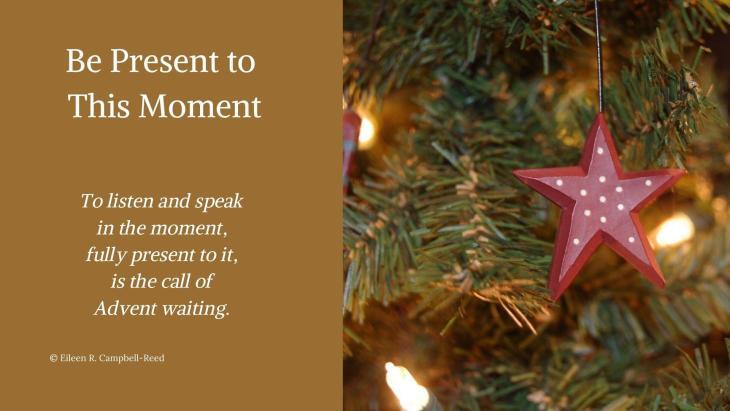One of the central metaphors for my work and sense of vocation is a bridge. This summer I saw one of the most iconic bridges of the American imagination: Golden Gate in San Francisco, California. Both days we got close to the bridge it was shrouded partially in fog. Not unusual in the Bay area. Not unusual for the work of bridge building and walking.
Read MoreOrdinary Time IX
The beach is awash in rocks. Each one a solid idea. Some round. Some fitting perfectly into an open palm. Others jagged. Miniscule. Others large as islands. Piles of ideas rolling around in the sea of time. Bumping into one another until no sharp edges remain.
Read MoreOrdinary Time VI
Today I went to hear Alan Roxburgh at the Leadership Institute, a pre-meeting of the Cooperative Baptist Fellowship in Charlotte, North Carolina. I’m constantly bumping into the ideas in the “missional church” movement. I find the ideas somewhat interesting, but rarely do I experience them as dramatically innovative. Usually I walk away from such engagements feeling mostly skeptical. So I decided to take another opportunity to listen in on a presentation and see where it led me.
Read MoreOrdinary Time V
On Sunday night I had one of those privileges of a life time. I heard Dave Brubeck play live at the Blue Note Jazz Club in New York City. He was my second jazz crush (after Louis Armstrong) about a dozen years ago. Brubeck, who turns 90 this year, sounded amazing, and was charming as he told a few stories. As I watched his hands move over the keys I was amazed at how he creates a kind of sound from the piano that for me pretty much defies description. Each note is clear, yet together a sound rises up that goes beyond the individual notes.
Read MoreOrdinary Time IV
“When we see the world as an end in itself, everything becomes itself a value and consequently loses all value, because only in God is found the meaning (value) of everything, and the world is meaningful only when it is the ‘sacrament’ of God’s presence.” – Alexander Schmemann, For the Life of the World
Read MoreOrdinary Time II
I spent the summer of 1990 in Birmingham, Alabama. Like most summers in the deep South, it was hot, sweltering and sticky that summer. I had completed my first semester of seminary, and wanted to get some “field work” under my belt. So I applied to be an editorial assistant at Woman’s Missionary Union. I’d grown up on a steady diet of missions literature and practice which came out of Birmingham, so this was a bit like going to the holy city for me. Like most pilgrimages it had its moments of awe and its moments of disillusionment. It also held moments of learning and friendship, which have deepened across the years.
Read MorePentecost I
Three days in a row I found myself sitting with three different circles of women. We gathered around food, friendship, stories, laughter, tears, outrage, and promise. The occasion and purpose for each circle was different, yet they shared some things in common. Conversations took turns through work, love, grief, friendship and gratitude.
Read MoreEaster XIII
Healing Part III: Honest Music
I’ve found myself in the past couple of years in search of music that speaks to life. Really speaks to life.
So much popular music is mainly the girl meets boy (or boy meets girl) variety of sentimental or sensual romance. I’m not totally against this. It just has limits. I’m looking for the kind of lyrics and musical composition that goes deeper than feelings and hormones.
Easter III
One of the best gifts we can give to people is to ask them “How did God’s presence get you through that tough spot in your life?” This was the advice of sociologist and self-described “immigrant in practical theology” Nancy Ammerman. Nancy gave the opening key note address at the Association for Practical Theology last Friday evening.
Read MoreHoly Week I
Holy Week. As I removed my shoes tonight and pressed my feet to the cold tiles in the sanctuary I was taken back. . . . In my final year of seminary I preached to my peers and friends at Southern Seminary. It was the first (and I suppose the only) time I preached in my seminary community (outside of preaching class anyway). It was Maundy Thursday in 1993. It was something of a renegade service.
Read MoreLent IX
Spring in Minnesota. I just came in from wrapping up the fifth round of interviews with seminarians who are completing their formal education and moving toward ministry. We held the interview at the Collegeville Institute adjacent to the campus of St. John’s University in Collegeville, MN.
Read MoreLent III
“On practicing Our Faith” On practice. On practicing our faith. On practicing our faith with the Jesus story.
Where exactly are we in the Jesus story, right about now? Let’s try to locate ourselves on our journey through the Jesus story. The lectionary. You recall what that is: the list of scriptures that reaches out across the Christian landscape and leads us week by week and season by season through each church year. Each year we follow the Jesus story in the Gospel readings . . .
Epiphany IX
Embodied Practice: Three Crashes from the Past Week
I stood looking at my things for the Prayer and Pastoral Care class: papers, books, chime. I was missing my water and one book. My watch said I had about three minutes before it was time to start the class. Just enough time to run up to my office and back down to the classroom. I turned quickly to my left and headed for the door. Half way there: Crash.
Epiphany III
Storytelling . . .
In 2001, as I was working my way through doctoral courses in Religion, Psychology and Culture at Vanderbilt, I read pastoral theologian, Andy Lester’s book, Hope in Pastoral Care and Counseling. In that book he articulates several important ideas including the notion of “future stories.” The stories we tell ourselves about the future can have as much impact on us in the present as do all the stories we tell about our pasts.
For instance right now I’m carrying around a host of future stories about everything from what time I’ll turn out the lights tonight to what movie I might see this weekend, to where I’ll be teaching and what I will be researching 20 years from now. The power of future stories seems obvious when you try it on. But it is a significant challenge to the psychological traditions which mostly focus on the past as the main or only key to understanding personal identity or behavior in the present.
Read MoreAdvent III
It is late in the season of Ordinary Time. I am sitting in worship. Not in my usual home congregation but another setting. I find myself sinking deeper and deeper into despair.
Read More
Advent I : Be Present to This Moment
I first learned the word “Advent” not as a season, but as a description of small cardboard calendars that my parents brought home from Europe. Each year following Thanksgiving, we unpacked them from musty decoration boxes . . .
Read More

